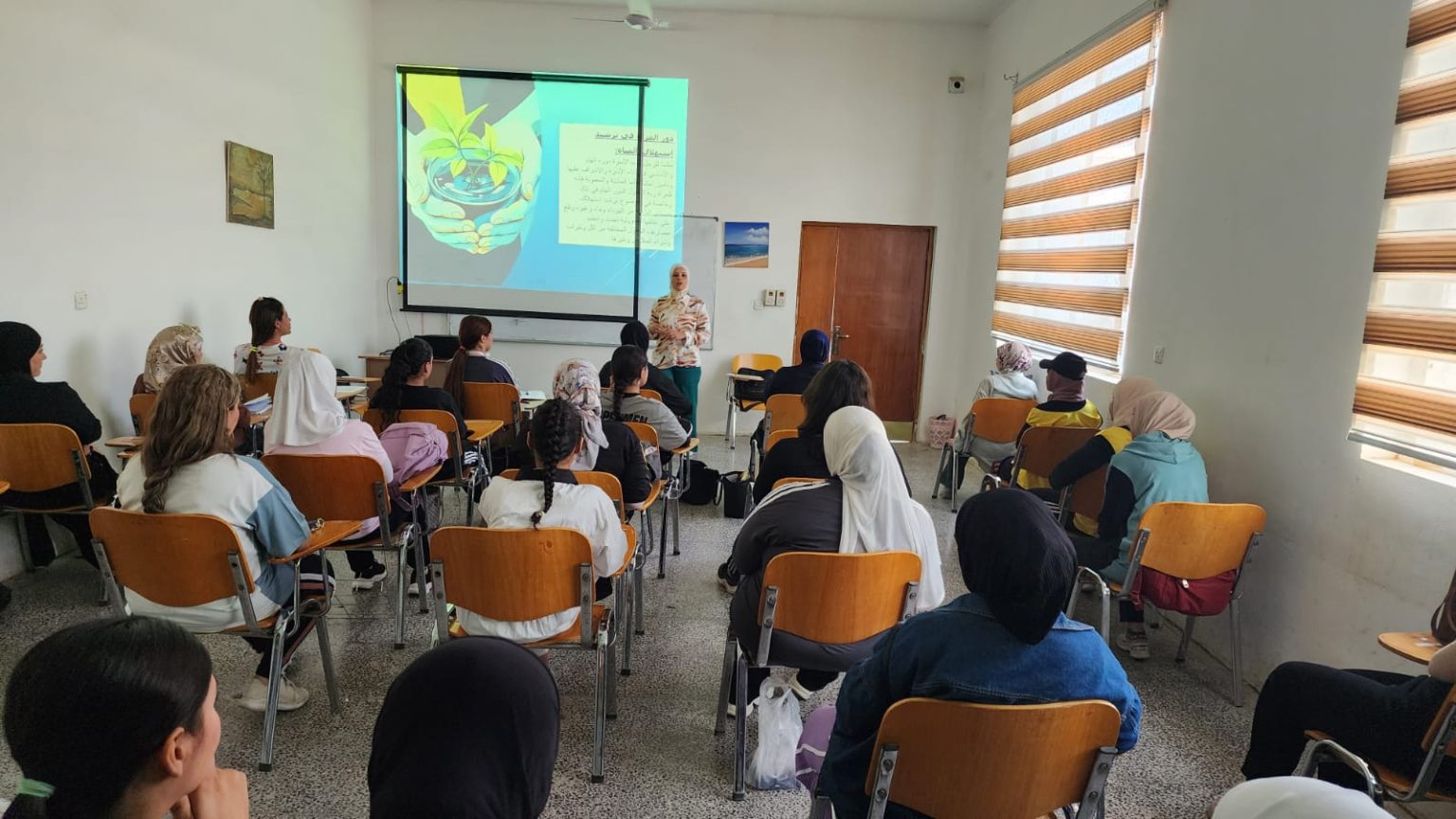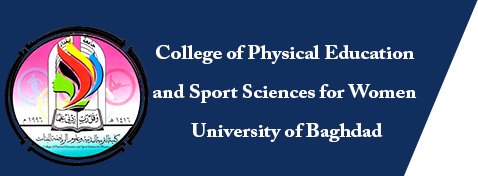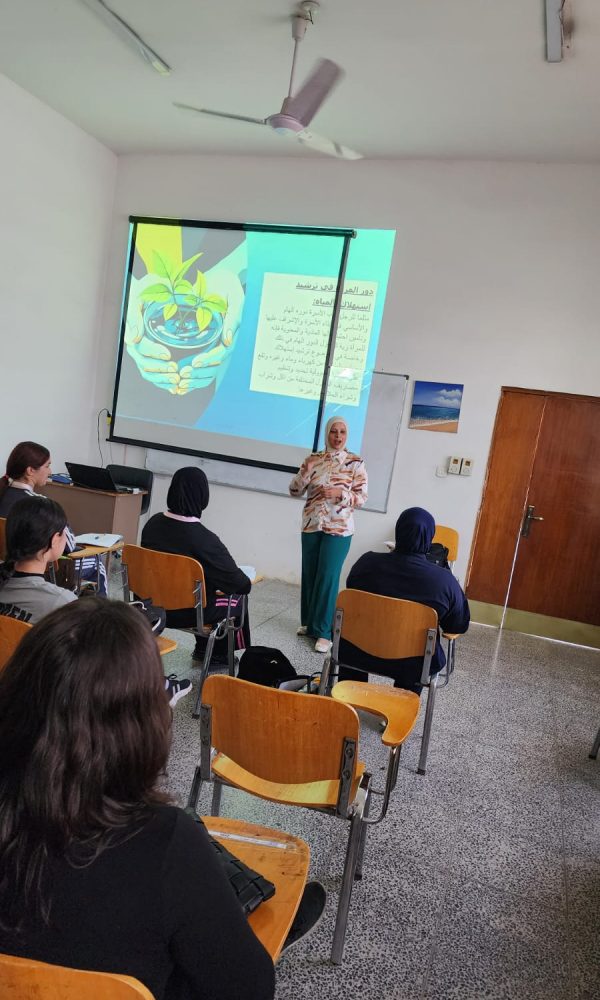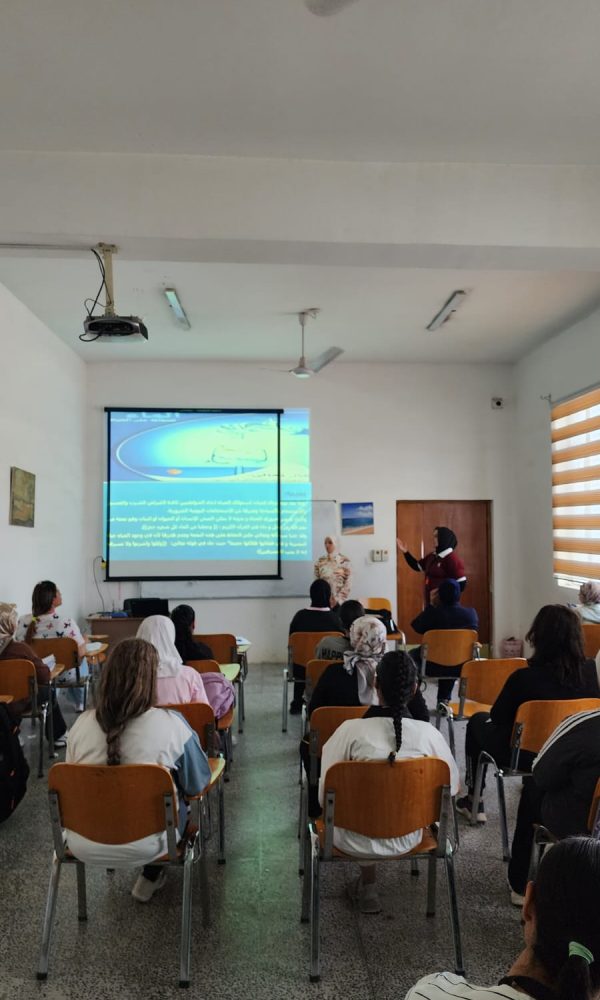As part of the ongoing efforts to promote environmental awareness and encourage sustainable behavior, the Student Activities Division at the College of Physical Education and Sports Sciences for Women organized an awareness lecture entitled (Sports and Its Role in Rationalizing Water Consumption).
The lecture was presented by Lect. Dr. Hanaa Abbas Abdullah and Lect. Dr. Zubaida Salah Hadi.
The lecture aimed to shed light on the phenomenon of water scarcity and to raise students’ awareness of the impact of excessive water consumption on the local environment, given that water is the primary source of life.
The speakers discussed the relationship between sports activities and water resource management, as well as how sports events can contribute to reducing water waste.
They emphasized how sports facilities—such as football fields, tennis courts, swimming pools, and gymnasiums—affect water consumption through activities like irrigation, cleaning, pool maintenance, and restroom use.
The lecture also highlighted effective methods to conserve water in sports facilities, including the use of intelligent irrigation systems, rainwater harvesting, recycling treated wastewater for reuse, and installing water-saving devices in bathrooms and sanitary facilities.
Furthermore, the speakers addressed the social and educational impact of sports, emphasizing how sports teams, athletes, and spectators can serve as role models in adopting water-saving behaviors and spreading awareness messages within the community.
At the conclusion of the lecture, several recommendations were proposed for short- and medium-term implementation, including the preparation of a guide on water-saving practices for sports facilities to be distributed to clubs and sports organizations. Encouraging the use of intelligent irrigation systems or treated water on sports fields. Implementing awareness programs within clubs and sports schools that combine sports with environmental education. Coordinating between sports authorities and water agencies to develop policies that promote water conservation in sports. Supporting research and field studies to measure water consumption in sports facilities and propose suitable local solutions.
This lecture contributes to achieving two of the Sustainable Development Goals (SDGs): Goal 4 – Quality Education, and Goal 11 – Sustainable Cities and Communities.











